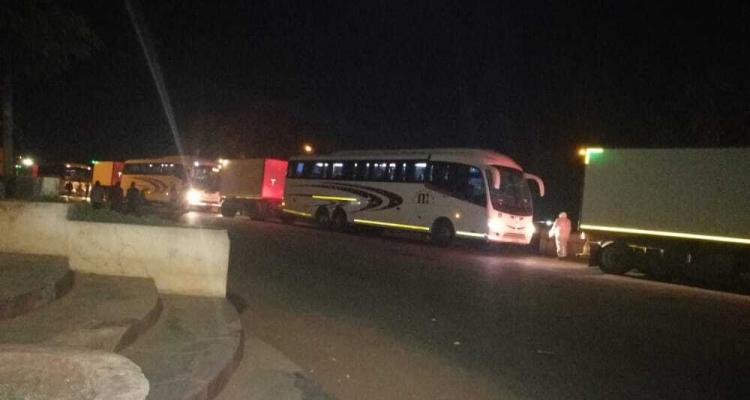
It has now become an everyday headline reading of ‘undocumented’ or ‘illegal’ Malawian immigrants being deported back from neighboring countries. Just in April this year, 24 Malawians without any valid travel documents were reportedly intercepted 127 Km from Mwanza at Tete in Mozambique on their way to South Africa. Along this, cases of people using unchartered routes when travelling outside the country are also on the rise in Malawi.
But who are these so called illegal immigrants and how do they find themselves in this predicament and what as a country, are we doing to protect and care for our own children, 59 years on after independence?
Background
According to UN’s International Organisation for Migration (IOM), migration reflects the common lay understanding of a person who moves away from his or her place of usual residence, whether within a country or across an international border, temporarily or permanently, and for a variety of reasons. Migration is furthered classified into various types depending on the flow and number of people involved, the reasons for their movement, the time they spend in migration, and the nature of that migration. Whilst some Malawians migrate to South Africa for long or short-term, the reasons behind such decisions vary.
In general, people migrate for a number of reasons like: Environmental, Economic, Cultural and Socio-political. Malawians mostly go to South Africa for economic reasons due to ‘pull’ or ‘push’ factors.
Based on Pull Factors, most of our young Malawians leave their families in such hotspots like Mzimba or Mangochi after being driven largely by better economic opportunities, better paying jobs, and the promise of a better life by their peers. Push factors are those that force individuals to move voluntarily, and may include such as conflict as in Sudan or Ukraine, drought, famine, or extreme religious activity as is the case with some refugees Malawi receives. During the single party era of MCP, some eminent Malawians were forced into exile through push factors like political intolerance and persecution. Currently, Malawi’s below par economic performance and lack of job opportunities are other strong push factors further aggravating the demand side of migration in South Africa.
Reality Check
According to Africa Check, South Africa is currently undergoing consistently high rates of migration from SADC countries and this is due to a colonial and apartheid-era regional “history of labour migration, especially from Mozambique, Lesotho, Malawi, Zimbabwe and Swaziland. It further reports that these countries were among the top 10 “sending countries” (countries of origin of migrants) in recent years.
Given South Africa’s history of xenophobia, foreign-born migrants like Malawians are increasingly at risk especially with the inherent perception that foreigners are in South Africa “to get our jobs and women”. It therefore becomes extremely difficult for Malawians, among others to get jobs or merely survive in South Africa under such conditions. It is therefore not surprising that some Malawians based in South Africa are conceding that things are no longer rosy as it were, with the rising levels of unemployment in the Rainbow Nation.
According to Fula Africa, a South African/Malawian NGO, some of our young citizens who attempt to get to South Africa with or without valid travel documents and most times, their journey ends in robbery, sexual assault or even death. Some, end up being a destitute and being prone to promiscuous behaviours for daily survival. It is not therefore surprising for such districts like Mzimba to receive on weekly basis, corpses of their young ones who had hoped for a rosy South Africa.
Given the current appetite to migrate, most Malawians therefore, end up being trafficked or become destitute and the few that make it, could be classified as ‘illegal immigrants’ – those without the legal permission to be in South Africa, or who are in South Africa under a different permit than their intended or actual use.
For those that survive into Gauteng and the peripherals, they join the band wagon and get ‘self-classified’ as asylum seekers despite having never experienced war in their entire life. Some get rounded up and offloaded for a good time at Lindela Repatriation Centre in Krugersdorp West whilst awaiting determination of their legal status in South Africa or deportation back to Malawi to re-launch their trip once more.
What’s Next?
It is a known fact that Malawi’s industrial sector is continuously shrinking and failing to meet demands of its growing youthful population and it’s worse when you factor in the impact of Covid19, the energy crisis where most industries recently downsized or completely shut down whilst the agriculture sector could be said is currently on resuscitation due to climate change and other factors.
The country therefore needs concerted political commitment and action towards our youth with a view to contain the appetite for economic migration. Mega farms, loan schemes or technical colleges without a supportive backbone, is merely rhetoric if we are to address the unsustainable migration to South Africa and the neighborhood.
As regards the supply side, we need a multi-sectoral and multi-national approach in addressing unemployment in the region bearing in mind that one in 30 persons are migrants according to IOM and this is a reality we need to live with just as we currently do with our brothers and sisters from Burundi. Just as we need South Africa as a receiving country, in terms of FDIs, we need more than Shoprite or Spar in our equation to contain the migration pressure on such countries like South Africa.
To fellow Malawians, attempt to have a valid passport in addition to adhering to visa requirements before proceeding to the rainbow nation. For organizations like IOM or Fula Africa, Mzimba and such related districts, need your support towards awareness raising towards what migration into such destinations like South Africa entails and the possible dangers around Trafficking in Persons as well as smuggling of migrants. End
Follow us on Twitter:













